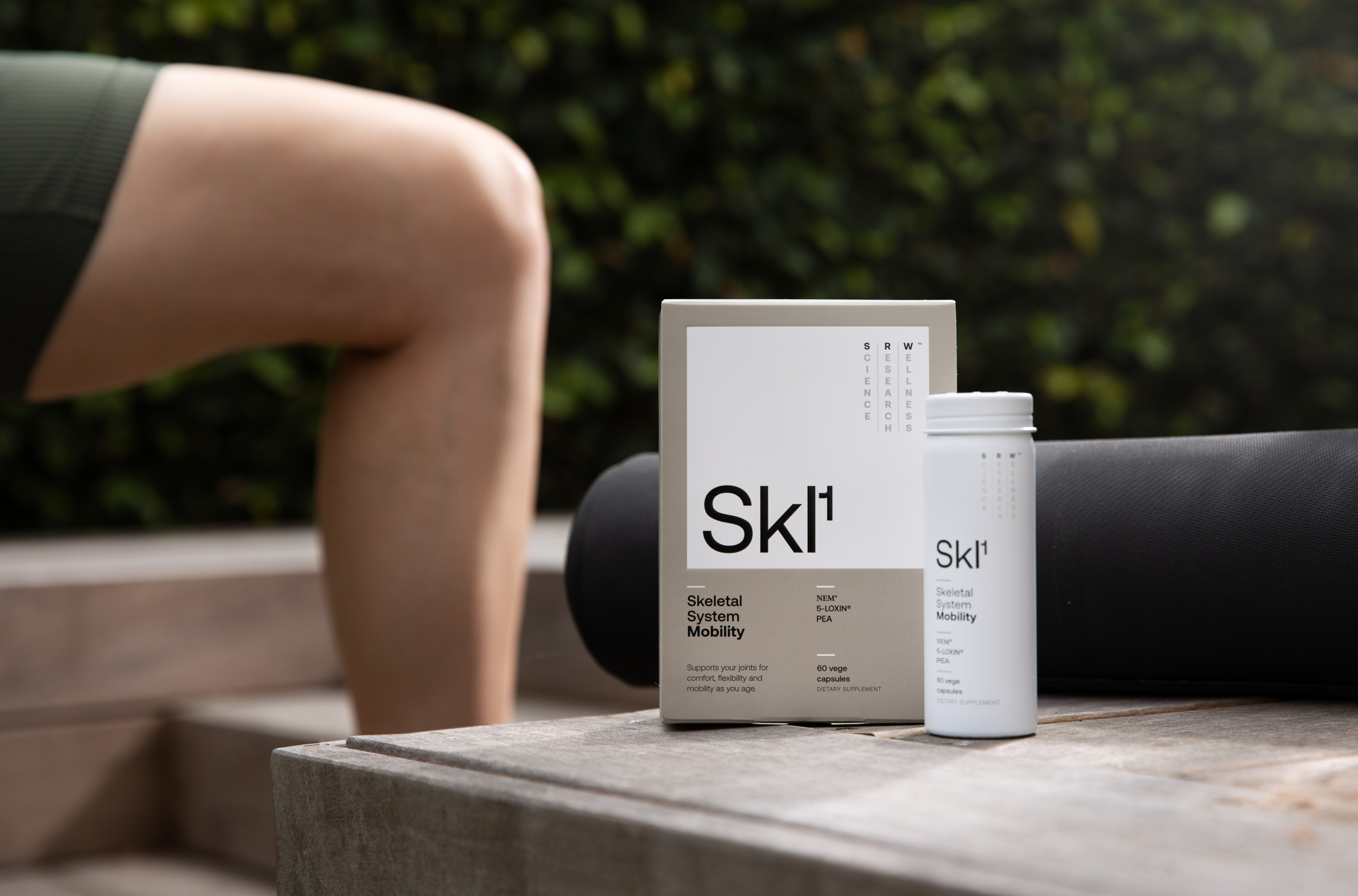Walking and weight-bearing exercises are two key pillars in an actively aging lifestyle. While the amount of steps we should take each day or the number of days we should participate in weight training varies greatly from expert to expert, the sentiment does not. In order to age wisely, we need to move and we need to lift heavy things.
But, did you know that the very activities we need to perform can add to the deterioration of our bones, joints and ligaments? Our knees are subjected to forces equivalent to 1.5 times our body weight from the simple act of walking. For those who run or jog, these compression forces can be anywhere from 7.0 to 11.1 times our body weight.
What exactly does happen to our joints over time?
As we age, several changes occur in our joints and in our mobility due to our genetics and our lifestyle choices. Here are some common age-related changes:
- Cartilage Wear and Tear: The cartilage covering the ends of our bones and joints becomes thinner and less resilient, resulting in the decreased ability to cushion and protect our joints. This leads to the joint pain and stiffness often referred to as osteoarthritis. Certain supplement ingredients have been shown to support cartilage health including NEM, or natural eggshell membrane.
- Decreased Synovial Fluid: Synovial fluid lubricates the joints and nourishes the cartilage. This fluid decreases over time, making your joints less flexible and more prone to inflammation and pain.
- Loss of Flexibility: The range of motion in our joints decreases as we age, making it more difficult to perform certain movements, limiting mobility and functionality.
- Inflammation and Swelling: Chronic low-grade inflammation, which is common with aging, can lead to joint pain and swelling. This inflammation can also affect your mobility and comfort.
- Joint Pain and Stiffness: Pain and stiffness around joints are common complaints in older adults, which makes it a bit more challenging to move comfortably or to even move. Looking for supplements that include Micronized Palmitoylethanolamide (PEA) and 5-LOXIN will help support health and comfort.
While these age-related alterations are common, they are certainly not inevitable — and their severity can vary greatly from person to person.
What lifestyle adjustments can we make to support our joints as we age?
It is important to note that 70% of our health is determined by our behavior — and the fact that we do have a good amount of agency in how we age is great news. There are some sensible lifestyle choices around nutrition, exercise, and supplements that we can take to sustain and improve joint health.
- Supportive supplements. Supplements can help you maintain robust cartilage and ligaments to support the recovery and maintenance of active, aging joints. Skl¹ contains a special combination of natural ingredients PEA (a fatty acid found in peanuts and egg yolks), NEM (a natural, food-source ingredient that supports joint health), and 5-LOXIN to provide the building blocks for cartilage to support joints. Skl¹ has been scientifically shown to soothe joints in as little as 24 hours. The scientist behind Skl¹, Dr. Cem Aydogan, PhD, has over 20 years of experience in pharmaceutical and nutritional industries. Dr. Aydogan co-authored a study using NEM® which was published in the Journal of Arthritis.
- Maintain a healthy weight. Being overweight places extra strain on your weight-bearing joints, such as your knees, ankles, hips, and back. By maintaining a healthy weight, you can limit the amount of stress on your joints and reduce the risk of joint damage.
- Keep moving. Being active can help reduce stiffness in your joints. Walking, swimming, cycling, strength training, and stretching can help your joints stay mobile and may even help you shed some extra pounds.
- Stay strong. Strong muscles and bones provide support and stability for your joints. Adding strength training exercises to your routine can help you build muscles that keep your joints safe and mobile.
- Don’t forget about diet. Eating healthily may improve your joint health and help you lose any excess weight. Pay attention to lean proteins as they can help you build and strengthen your muscles, while calcium and vitamin D can keep your bones strong.
Why augmenting our lifestyle changes can improve results
Sometimes lifestyle changes are not enough. Science and technology are great partners in aging and are often used to support a healthy lifestyle. Despite the presence of natural cushioning and a healthy lifestyle, many of us still experience joint pain as we age. SRW’s Skl¹ is specially formulated with glycosaminoglycans, hyaluronic acid, collagen and proteins to support the preservation and production of the connective tissue needed to support the functioning of our joints as we age.
Want to learn more about SRW Skl¹ and how it can help you find relief and renewed mobility? Use the code “AGEIST20” at checkout and receive 20% off.



Is this an ad? Reads like one
Yes it does appear that way. And it’s not the only one. Time to find a better site I think.
Good morning! Thank you for the questions and the comments. This is a sponsored article – as mentioned at the top of the page. At AGEIST, we do write educational articles on the brands and the products that we personally vet and test through our CEO and our Scientific Advisory Board.
This is and most of other articles geared to sell products. I’m not interested any more.
I have to agree – lately every Ageist seems to be pushing some new supplement, vitamin or anti-aging product. I don’t think my bank account could handle the hit if I bought everything suggested to live longer, stronger, etc. Not to mention how much time it would take to swallow all the vitamins and supplements and application of anti-aging elixirs you push.
Pretty much just ads for ‘miracle pills’.